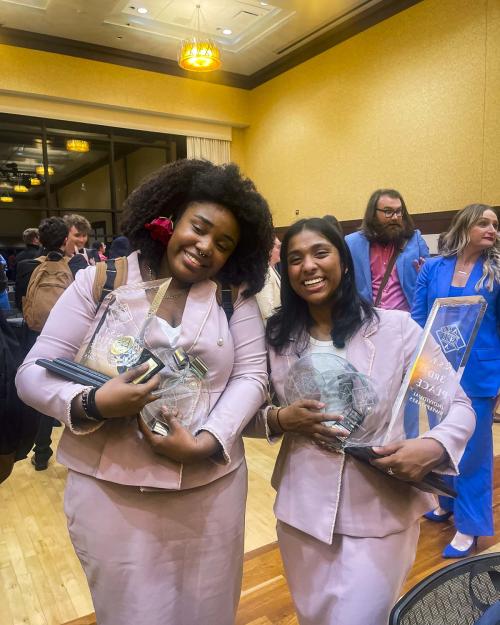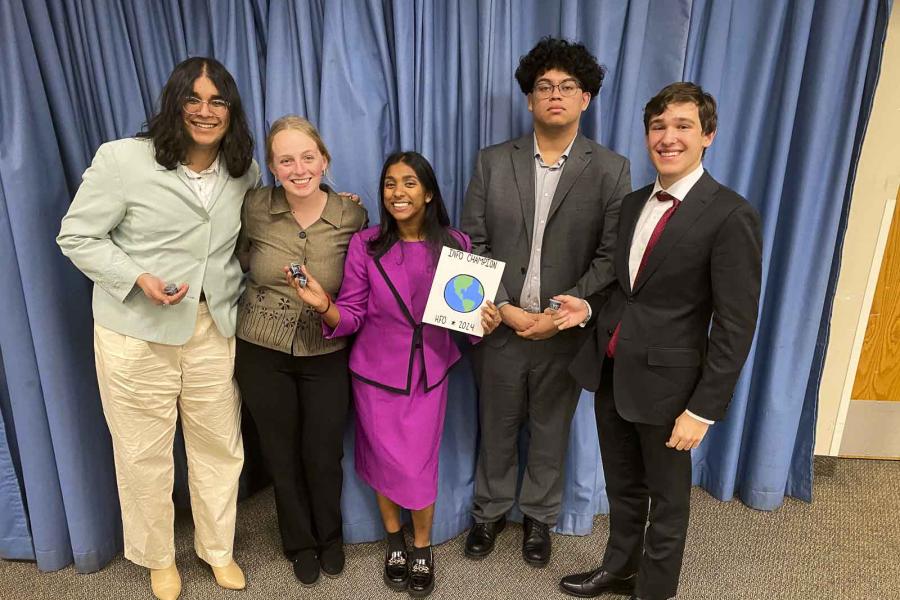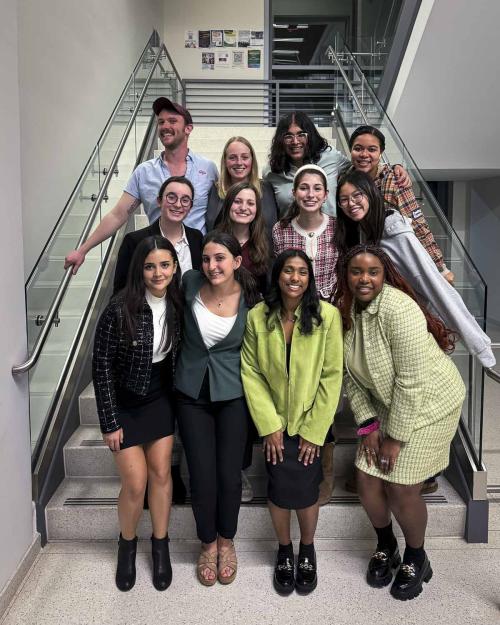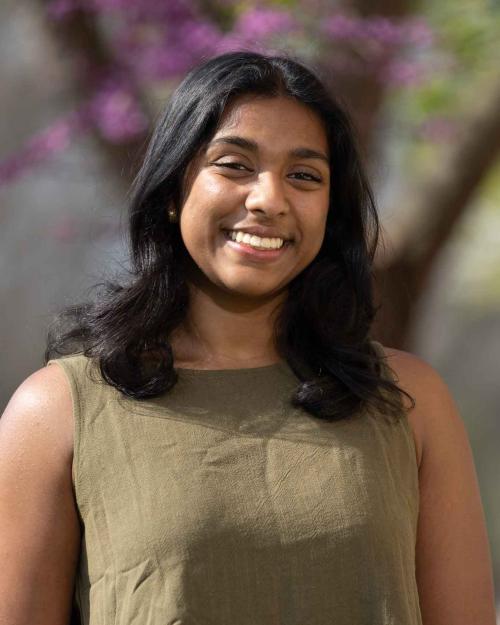Asha Prabhat
Feminist, Gender & Sexuality Studies, Government, College Scholar
Marlboro, N.J.
What is your main extracurricular activity and why is it important to you?

I had two main extracurricular activities — being an active competitor on the Cornell Speech team and leading the student-run nonprofit, The Advocacy Project. But they're both connected. As a speech competitor, I hone skills of public speaking and storytelling, telling narratives of marginalized communities and my own identities that often go untold. But advocacy is a privilege, a skill that not everyone has access to. With the advocacy project, I and the other founders created a curriculum to teach how to argue, persuade and advocate for causes communities might be passionate about. Both activities informed one another and subsequently informed me— they taught me that my purpose in life is to tell stories, whether others or even my own.
What are the most valuable skills you gained from your Arts & Sciences education?
I learned how to put many different types of authors in conversation with one another. As a College Scholar, I was able to take many various types of classes in different disciplines, as the College Scholar program champions interdisciplinary research and education. Now, my thesis focuses on putting legal writing, feminist theory and global development programming in conversation with one another. A&S, College Scholars and my amazing professors gave me the tools to do that.

What have you accomplished as a Cornell student that you are most proud of?
This year, I was the world champion and the national champion in persuasive speaking. My speech discussed the impacts of PCOS, polycystic ovarian syndrome, on patients and why it is so under-diagnosed. Using my own experiences and narrating other brave patients' stories, I created a call to action for medical communities to take this condition seriously. The speech was a culmination of a year of work, and winning both a world and national title proved to me that my experiences, even the painful ones, were worth it. Seeing my coach cry during the performance was just icing on the cake!
How have your beliefs or perspectives changed since you first arrived at Cornell?
Coming to Cornell, I expected to get lost in the sea of people, given how big the campus is. But I discovered that within certain niches are beautiful communities. Because of my involvement, I was very active in the political advocacy space at Cornell. I was incredibly surprised to find out how motivated every student leader on campus is to support other groups' work. From Planned Parenthood to Consent Ed to the Cornell Anti-Detention Alliance to many more, I have worked with so many organizations who have gladly encouraged their members to attend our events, reposted our infographics and event flyers, and co-sponsored and co-led our programming. These connections are longlasting, as I've relied on these leaders for four years now and their support has never wavered. So I implore incoming students to find the leaders in your niche and build those connections.
Who or what influenced your Cornell education the most?

I would say the Feminist, Gender, & Sexuality Studies program influenced my Cornell education the most. From learning about theory that has allowed me to contextualize my own identities to exploring history via under-discussed lenses, I have learned more in this academic space than anywhere else in my life. FGSS classes informed my speeches for the speech team, informed my choice in internships (for example — I interned for the Center for Reproductive Rights after working on a post-Dobbs talk with the FGSS program) and informed my thesis for the College Scholar program, as I explored caste, gender and victim in rural India.
Every year, our faculty nominate graduating Arts & Sciences students to be featured as part of our Extraordinary Journeys series. Read more about the Class of 2024.





